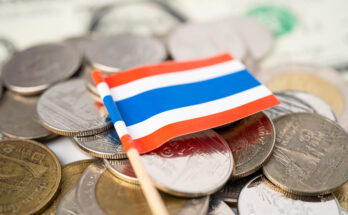Introduction: Thailand has become an attractive destination for foreign investors and companies looking to expand their business operations. One common question that arises is whether a company, whether foreign or domestic, can own property in Thailand. In this article, we will explore the rules and regulations governing property ownership by companies in Thailand.
1. Legal Structure of a Company in Thailand:
- Before delving into property ownership, it’s essential to understand the different types of companies in Thailand. The two most common types are private limited companies and public limited companies.
- Private limited companies are more commonly used by foreign investors due to their simplicity and flexibility.
2. Foreign Business Act (FBA):
- The Foreign Business Act (FBA) is a crucial piece of legislation that governs foreign ownership in Thailand. Under this act, certain business activities are restricted for foreign entities, and ownership of land is one of them.
- Foreign companies can only own land for specific purposes, such as promoting investment or tourism, as authorized by the Board of Investment (BOI).
3. Land Ownership Restrictions:
- According to Thai law, land is divided into different categories, and foreign companies are generally prohibited from owning land in Thailand.
- However, there are exceptions and ways to structure ownership to enable foreign companies to own property for certain purposes.
4. Leasehold vs. Freehold:
- While owning land may be restricted for foreign companies, they can still acquire leasehold rights for an extended period, usually up to 30 years, with an option to renew.
- Leasehold properties can be an attractive option for businesses as they grant long-term usage rights without full ownership.
5. Setting Up a Thai Company:
- To circumvent the land ownership restrictions, foreign companies often set up a Thai subsidiary and register it as a Thai entity.
- By doing so, the Thai company, with majority Thai ownership, can legally own land in its own right, allowing the foreign parent company to control and use the property.
6. Nominee Arrangements:
- Some foreign investors may consider using nominee arrangements, where Thai nominees act as the legal owners of the property on behalf of the foreign company.
- While this practice has been used in the past, it is essential to note that nominee arrangements can be subject to scrutiny and are not without legal risks.
7. Condominium Ownership:
- Foreign companies and individuals can own condominium units in Thailand up to 49% of the total floor area of a condominium building.
- This option provides more straightforward access to real estate in popular areas without navigating the complexities of land ownership.
Conclusion: Despite the restrictions on land ownership for foreign companies in Thailand, there are viable alternatives available to secure property for business purposes. Leasehold rights and condominium ownership are two feasible options for companies looking to establish a presence in the country. For foreign investors considering property ownership in Thailand, it is crucial to seek professional legal advice and ensure compliance with the relevant laws and regulations.
References:
- Board of Investment (BOI) Thailand – https://www.boi.go.th/
- Foreign Business Act (FBA) – http://www.mfa.go.th/main/en/services/4908/15405-General-information.html
For more information, please contact UnionSPACE Team
For English, call: +662 036 0600
For Chinese, call: +66 84 049 873
For Russian, call: +662 036 0607
or email us at sales@unionspace.co.th



